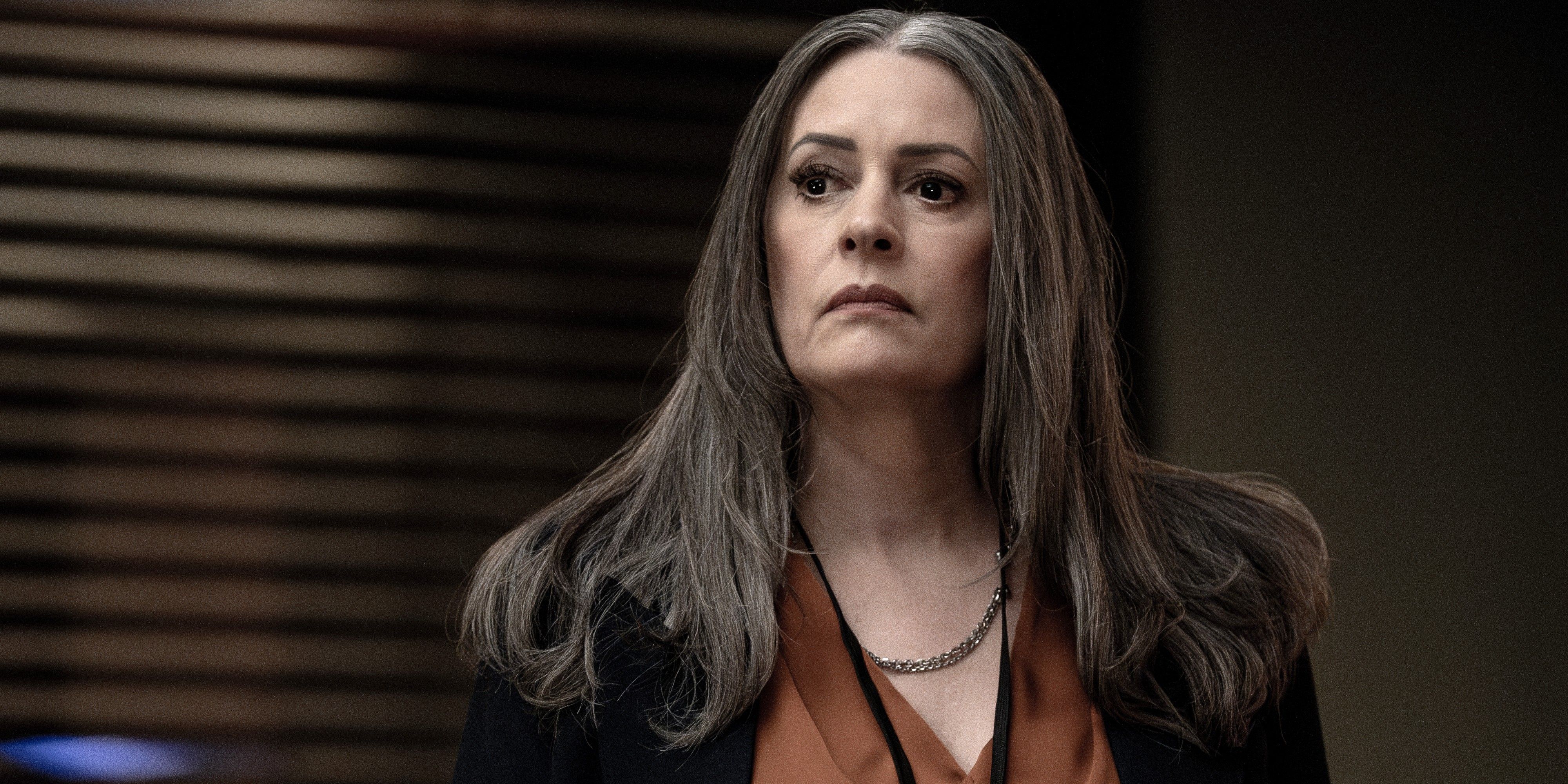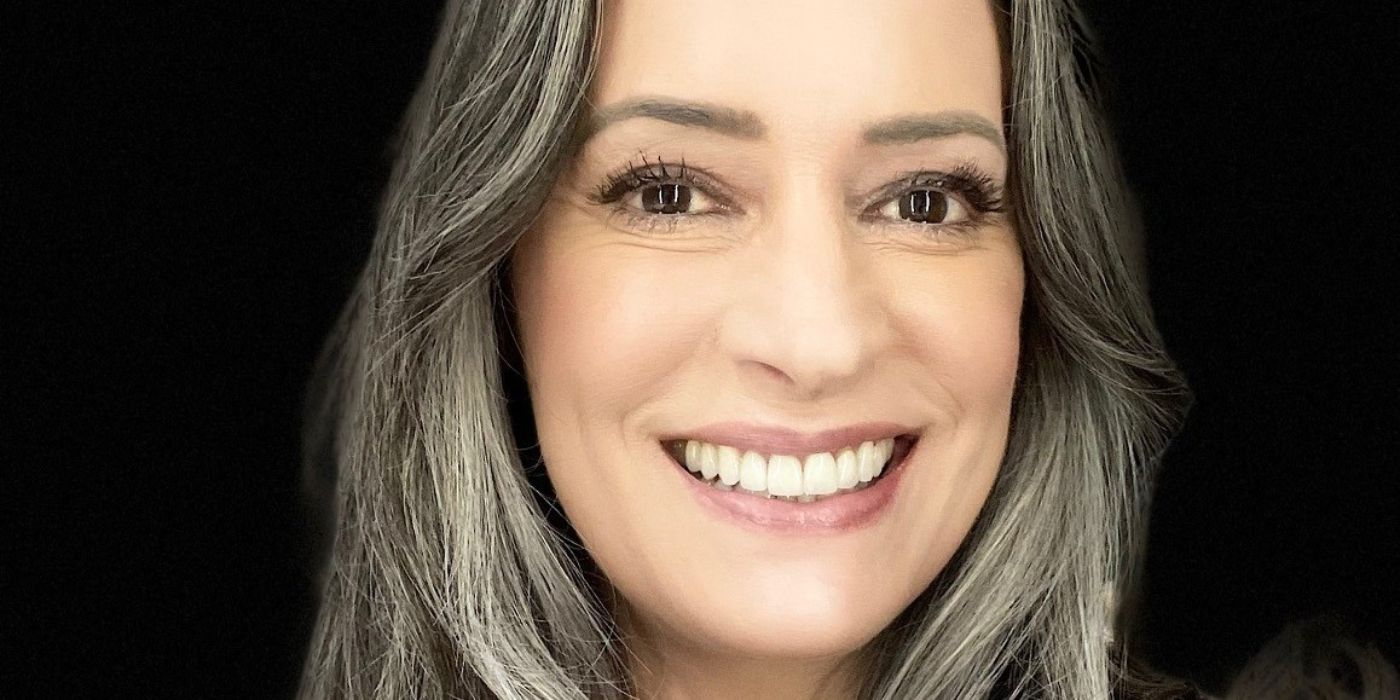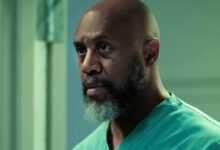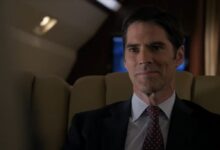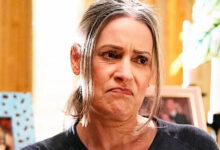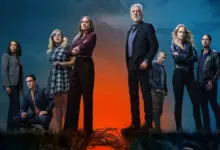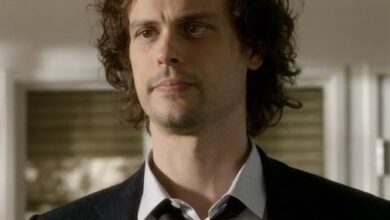‘All of It Speaks to Me’: Criminal Minds’ Paget Brewster Surprises Fans in the Signal
In an interview with CBR, Brewster spoke about how The Signal appealed to her longtime interest in the paranormal. She also dove deeper into her extensive voice-acting and performing career, which has included Dan Vs. and The Thrilling Adventure Hour. Plus, what is it like to record a scripted pocast compared to a live-action drama?
CBR: Audiences may not know that you’ve been a voice actor for a very long time — so what was it about The Signal that stood out to you creatively?
Paget Brewster: I’ve done a fair amount of voice work on animated shows and narration, and I do a live radio stage show — we’ve been doing that for 21 years — called The Thrilling Adventure Hour. But I had never done an Audible original. I’d never done a scripted podcast before. I got the audition from my voice agent, and I read the first episode and loved it. [I] just thought oh, this is fascinating to me. This is right up my alley. I I want to know what is out there, what is in space? What is it like being this character, who is struggling with where she is in life, how she got there — she’s sort of been thrown out of her profession as as an astronomist and and is pulled back into that world by this journalist. All of it speaks to me.
And I love the story. I love the idea of the government hiding a signal from space. What does it mean? And who is it? It’s something that she and all of her former peers were looking for and waiting for, and it finally shows up when she’s been ostracized from her job. She’s teaching at a high school when this journalist comes and finds her. So I auditioned for it and thought okay, I think I have the vocal qualities to sound like I have a Ph.D. in astronomy. I think I asked to audition again when I didn’t hear anything for a couple of days… It really spoke to me, and it ended up being even better than what I thought it would be.
The whole process was really exciting, and I got to work with [Chicago Fire guest star] Nate Corddry, who I’d never worked with before. I played his brother’s ex-wife in a movie and a pilot, so I knew Rob, but I’d never met Nate. And he’s also a very funny, affable, wonderful, generous actor, just like his brother. He’s just lovely and and funny and fun. It was really exciting when I found out he was going to be playing the journalist, Malcolm.
Which raises an interesting point. With TV, there’s often talk about chemistry between actors. But many voice actors don’t record in the same room anymore. So what was the creative process for The Signal, with its cast?
We were recording in the same recording studio, but because they want to keep all of the mics clean — so that audio doesn’t bleed over from one person to the other — we were actually in separate recording [rooms] on either side of the engineering booth. We could occasionally kind of lean over and look at each other through two or three panes of glass, and we could hear each other on the headphones, and we were looking at each other on Zoom.
All of the other actors are a bunch of actors in New York, I think somebody was in Chicago, somebody was in a studio in Burbank. Other actors joined in on Zoom. So we weren’t actually in the same room together, but it works better… They wanted us to be able to speak over each other and make noises of dissent or agreement or laughing while we were doing scenes. And the best way to record that, so that you can edit it properly, is to have the actors separate.
Then we had lunch together, and we’d see each other in the morning and when we left in the evening. It was really fun going to work, because most voice work now, everybody’s separate. You only go in and record one person at a time. You never see anyone else. You don’t hear anyone else. You record on Zoom in an isolated studio or audio booth. And so it was exciting to be able to go to work and see the engineer and the guy who owns the studio, and see Nate and see the other actors on Zoom while we were recording. It was really, really fun.
You have an Emmy nomination for your work on DuckTales, and you’ve been voice acting since 1998’s Godzilla animated series. So just as you’ve grown with years of playing Prentiss on Criminal Minds, is that also true of voice work? Do you continue to grow and refine your vocal talent?
Gosh, I hope so. [Laughs.] voice work for animation has changed a lot in the last few years. I think I’ve been basically one of those utility voices on American Dad for, I want to say, 19 years now. And it started on American Dad, where you would come in — you’re cast to do a voice or, I have had to replace people before, where for whatever reason, they weren’t happy with what happened when they got to editing. And so they call me in to redo the dialog for for a couple of people, but I was able to do other voices. So you go in and say okay, I’m playing a pediatrician with an anger problem. And while you’re there, they’re like hey, we have like, a teenager in an auditorium. Can you do a couple of teenage girl lines? Absolutely I can. And now, most animation jobs — whatever part you’re cast for, you also supply two other voices.
I’ve been doing this 27 years, pushed myself to learn more accents, more dialects. I will never be as good at kid voices as people like Pamela Adlon and Debra Wilson. There are women who do child voices that if you’re watching them do it, you feel like you’ve lost your mind. They’re so good. I did do Della Duck on DuckTales, for which I was nominated for an Emmy. But my friend Tom Kenny, he won that year — as he should have — because he’d been SpongeBob for 16 years at that point. So of course, he won. He should have won.
But doing The Signal was fascinating, because it was the first time I played a character in a scripted Audible original podcast over the course of eight episodes. So this thing was a whole new learning experience in playing a character and keeping that character alive vocally at all times. There’s never a time where someone else is doing dialogue, and everyone else in the scene isn’t intensely involved in also audibly being present in each scene… With an Audible original, you have to hear that that person is still there and invested in the conversation that’s happening. So it was a really interesting learning experience. And I’m so pleased that they cast me because I wanted it so desperately. I was just excited to do it. This was a whole new study in in how to act in this format. And I’m really flattered and and honored that they gave me the chance to do that, knowing that I didn’t have any experience doing an Audible podcast.
You mentioned before your interest in the subject matter. But between that and the collaborative experience of making it, was there any part of The Signal that really resonated with you?
I think what resonated the most for me was the writer, Eric Buchman — and he also received help from Gabriel Urbina and Sarah Shachat — they had such fully developed characters… The characters were very developed in where they came from, who they were, what their failures were, what their strengths were, and the way they communicated with each other. This thriller journey felt very honest and and real and human to me.
And it seems like that’s a difficult thing to do in writing, is to as a writer, really put yourself in a situation and say well, what would actually happen? How would someone react to this news? What is the actual human response? Not a movie idea, not a hero moment — how would a human being with this set of characteristics and abilities and disabilities respond to this moment? The whole script was written so clearly and honestly about human behavior, and the whole story is about what if we’re not alone, and what does that mean, and what is out there, and what price do we pay to pursue it? Why is that unknown something that needs to be kept from us, what is being protected?
It was beautifully written. And you really can’t do anything without a without a beautifully, honestly written base that that you jump off of and you hope that your performance supports it and helps it. We were very lucky that everybody was willing to give feedback and ask questions and share ideas… I thought they had a fascinating story that was specifically interesting to me, and it was written very, very clearly and in an interesting way. The history of these characters defines who they are now and where they want to go. That’s a very difficult thing to do. And I think they did it brilliantly.
